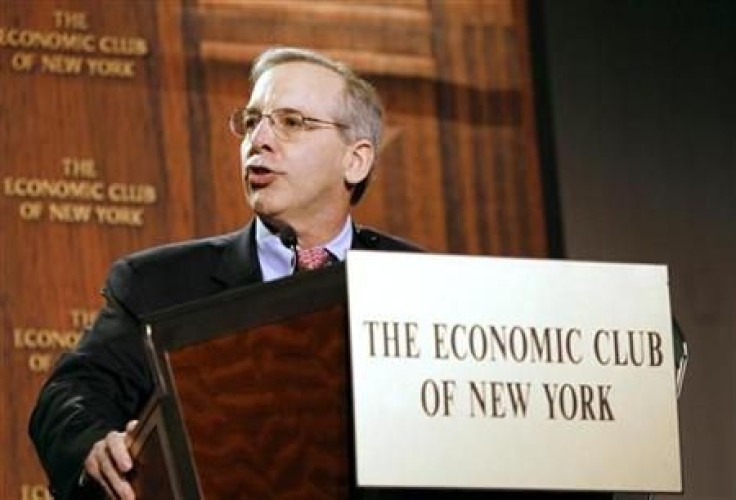NY Fed chief downplays debt monetization label

William Dudley, president of the New York Federal Reserve, downplayed the charge that the Federal Reserve is monetizing U.S. government debt during a CNBC interview.
The Fed is accused of doing so because it is engaged in quantitative easing, or the buying of U.S. government debt with money created out of thin air.
Dudley said the Fed is not monetizing the [U.S.] debt to any meaningful degree.
He said the Fed's portfolio of Treasuries, in absolute amounts and compared to total outstanding Treasury debt, is lower than it was at the beginning of the financial crisis. Moreover, the intent of the Fed is not to facilitate the U.S. government's issuance of debt, but to ease financial conditions.
Lastly, quantitative easing is simply the next policy step to provide more stimulus to support the economy after the Fed already lowered interest rates to zero and set up special lending facilities for specific market segments.
However, by definition, the U.S. is in fact monetizing government debt by buying them with money printed out of thin air. Moreover, the Fed's purchases -- totaling hundreds of billions of dollars -- included long-term 10-year and 30-year Treasuries.
The worry and criticism is that the Federal Reserve is easing the debt burden of fiscal authorities to the detriment of existing debt-holders. Furthermore, this policy of internally financing government spending with money printed out of thin air, which dilutes the purchasing power of existing debt-holders, may remove market discipline from fiscal authorities and make it easier for them to spend without restraint.
For the U.S. government, the downside to this policy is that private investors may eventually lose confidence in Treasuries and the U.S. dollar.
Recently, Dagong, a Chinese government-backed ratings agency, severely criticized the Fed's quantitative easing.
Analysts at Dagong said quantitative easing entirely encroaches on the interests of the creditors and signals the decline of the U.S. government’s intention of debt repayment.
They also said it is likely that an overall crisis might be triggered by the U.S. government’s policy to continuously depreciate the U.S. dollar against the will of creditors.
China is the largest foreign holder of U.S. Treasuries at $868.4 billion as of August 2010.
Email Hao Li at hao.li@ibtimes.com
© Copyright IBTimes 2024. All rights reserved.











